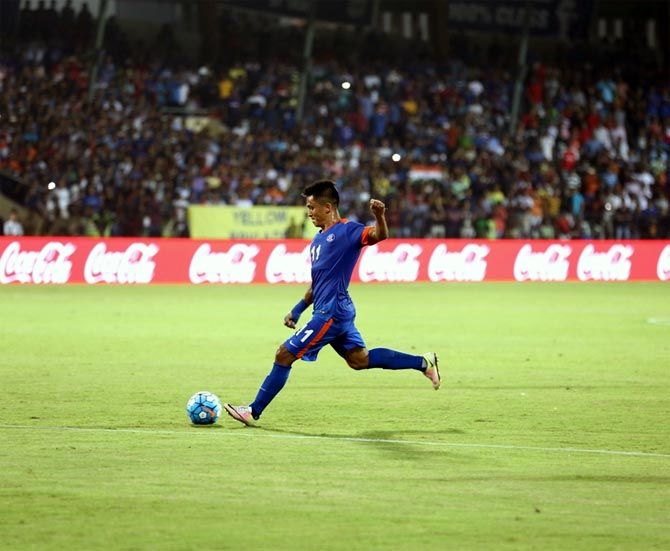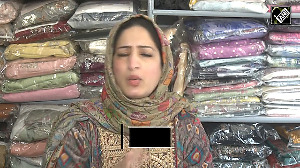The country of 1.3 billion is finally waking up to the most popular sport on the planet. Kushal Das, secretary general of the All India Football Federation, has said the country is aiming to qualify for the 2026 World Cup.

The size of the task facing Dutchman Piet Hubers when he agreed to help develop grassroots soccer in India quickly became apparent with one simple comparison.
Hubers discovered there are more full-sized pitches in his home town of Wijchen, which has a population of around 40,000, than in the whole of Mumbai, which has more than 20 million inhabitants.
"That makes it very challenging," he told Reuters in an interview held at the International Sports Convention in Geneva.
Iceland, who reached the quarter-finals of Euro 2016, are a good guide to what can be achieved.
"I use Iceland very much as an example," said Hubers. "They invested a lot of money in facilities, in halls, in artificial pitches but also in coaches.
"It's mandatory that every coach is qualified otherwise you can't even coach a youth team and that in my opinion is one of the basics of the success of Icelandic football."

Cricket-loving India is a sleeping giant as far as football is concerned.
The national side are 137th in the world rankings and, on the only occasion they qualified for the World Cup in 1950, pulled out without kicking a ball.
However, the country of 1.3 billion is finally waking up to the most popular sport on the planet.
The Indian Super League (ISL) is in its third season and Kushal Das, secretary general of the All India Football Federation, has said the country is aiming to qualify for the 2026 World Cup.
Hubers, a former defender for Dutch top-flight club NEC Nijmegen, believes that developing the sport at grassroots level is fundamental to India's plans.
"The more players you get into the system, the better the quality will be at the top," he said.
YOUNG CHAMPS
The ISL, promoted by billionaire Mukesh Ambani's Reliance Industries and Rupert Murdoch's Star India TV, have their own grassroots programme of which Hubers is technical director.
The most talented players are selected for a residential programme, based near Mumbai, known as Young Champs. Started in 2014, the scheme's first target is to give 500,000 children between the ages of six and 14 the chance to play football and get coaching.

Hubers said finding spaces to play is one of the major challenges in India's teeming cities and that children need to play regularly.
"One training session every week and a grassroots match every week for 20 weeks a season is the absolute minimum but that is also the biggest challenge because you need good facilities, you need a playing system, you need good coaches, you must organise teams and that is not so easy," he said.
Improvisation is often the key and the concept of pop-up pitches, where organisers bring portable goals and announce venues on social media, has become popular.
Officials have also attempted to persuade private clubs and schools to make their facilities available. "There are square metres you can use here and there, for example for playing a small game which can be four against four, or seven against seven," Hubers said.
Coaching is another key element.
"The most important thing for the ISL clubs is to educate the coaches ... so that parents can be confident their children are improving," added Hubers.
He said it can take 10 years of investment in grassroots football to pay off at international level and believes India's goal of reaching the 2026 World Cup is achievable.
"You always must set targets ... and that's just a target, not an obligation although it is certainly high on our wish list," he explained.
"I think that qualifying for the World Cup in 2026 is a realistic objective. When you look at the national team and the national youth teams, they're progressing very well and they will progress more if the grassroots system increases."








 © 2025
© 2025